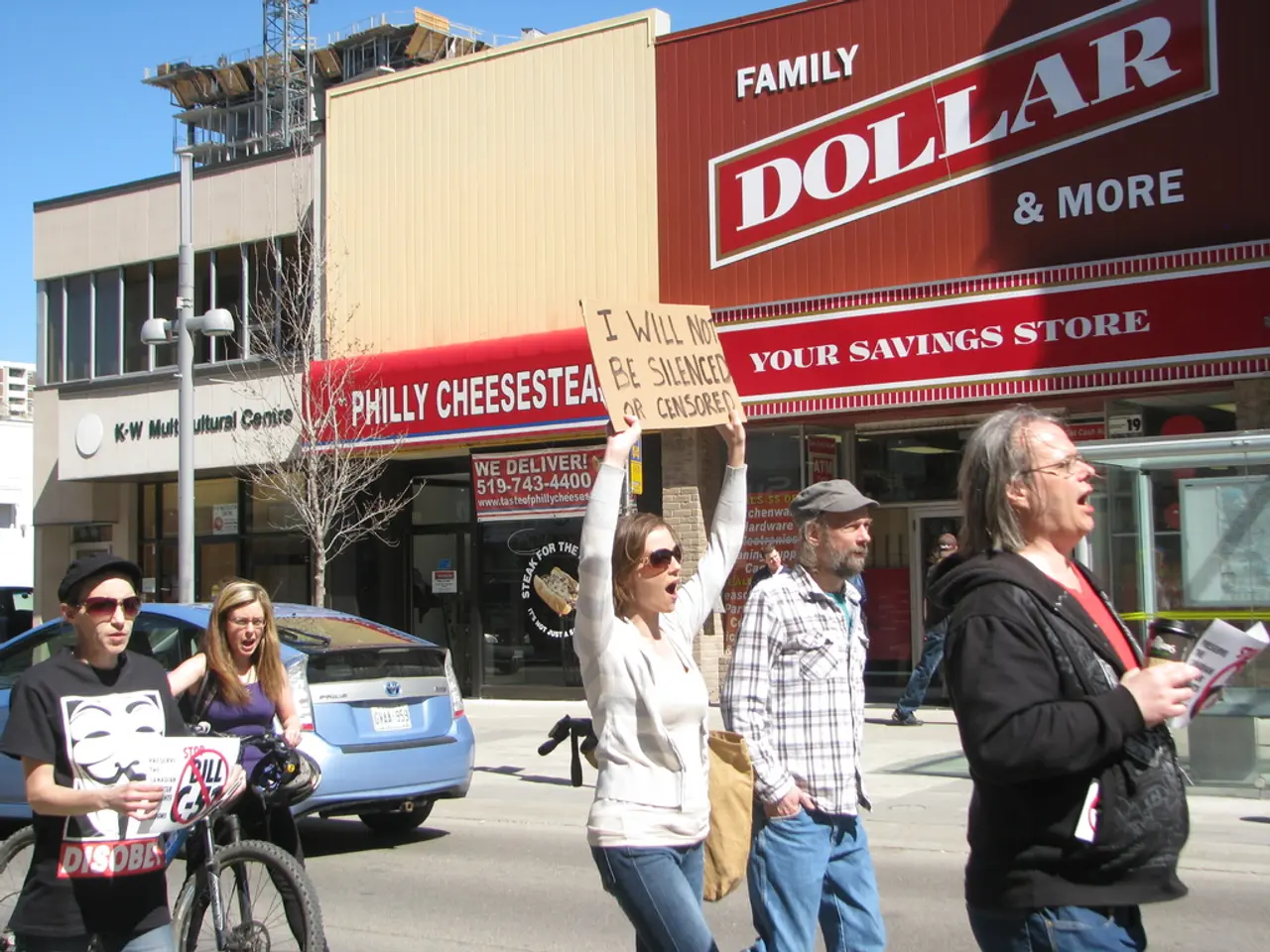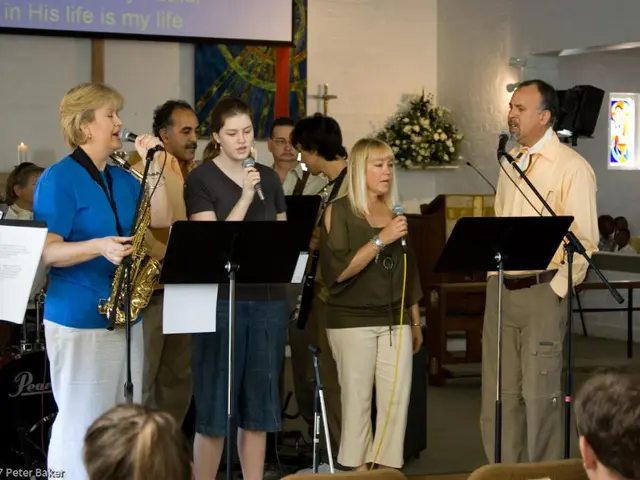Chaos erupts on France's streets as demonstrators confront President Macron and his new PM in a series of violent protests and strikes
Protests against Austerity Measures Sweep Across France
Thousands of protesters marched in Paris and across the country on Thursday, voicing their opposition to the government's austerity measures aimed at reducing the national debt. The demonstrations, part of the 'Block Everything' campaign, disrupted services and led to sporadic clashes with police.
At the forefront of the protests is the French national rail company SNCF, with striking rail workers causing disruptions to services. The strikes affected high-speed trains to France and Europe, although most services managed to run. The metro in Paris, however, suffered fewer disruptions than anticipated during rush hour, with traffic largely stopping outside those hours on three driverless automated lines.
The protests were primarily triggered by plans to implement budget cuts of up to 44 billion euros, freeze social spending and pensions, and eliminate tax exemptions. These moves have sparked widespread strikes and demonstrations across sectors like transportation, energy, and education. The demonstrators demand the new cabinet under Prime Minister Sébastien Lecornu to reconsider these austerity measures, opposing the cuts especially as President Emmanuel Macron recently enforced a contentious pension reform raising the retirement age from 62 to 64.
Many protesters complained about mounting poverty, sharpening inequality, and struggles to make ends meet. Pierre Courois, a 65-year-old retired civil servant, expressed his frustration with the erosion of taxpayer-funded public services under Macron's government. Left-wing parties and supporters want the wealthy and businesses to pay more to help rein in France's debts, rather than see public spending cuts that they contend will hurt low-paid and middle-class workers.
Striking transportation worker Nadia Belhoum expressed feeling 'squeezed like a lemon even if there's no more juice.' Hospital nurse Aya Touré shared similar sentiments, stating that the government has no understanding of real-life issues. Clara Simon, a history student, marched with a poster reading 'University in danger.' She expressed anger over the deteriorating economic and social situation in France.
The government deployed approximately 80,000 police officers to maintain order on Thursday. Paris police reported another 55,000 people marched in the capital, while unions estimated over 1 million strikers and protesters nationwide. The Interior Ministry reported 181 arrests nationwide as the afternoon ended, with more than 450,000 demonstrators outside Paris.
In an attempt to build consensus for a budget, Lecornu is meeting opposition leaders and labor unions. Lecornu has trimmed lifetime benefits for former government ministers and scrapped proposals to eliminate two public holidays. However, these concessions have not been enough to quell the protests. The demonstrations are set to continue, with the protesters aiming to pressure new Prime Minister Sébastien Lecornu and President Macron over financial issues and proposed spending cuts.
Read also:
- United States tariffs pose a threat to India, necessitating the recruitment of adept negotiators or strategists, similar to those who had influenced Trump's decisions.
- Weekly happenings in the German Federal Parliament (Bundestag)
- Southwest region's most popular posts, accompanied by an inquiry:
- Discussion between Putin and Trump in Alaska could potentially overshadow Ukraine's concerns






